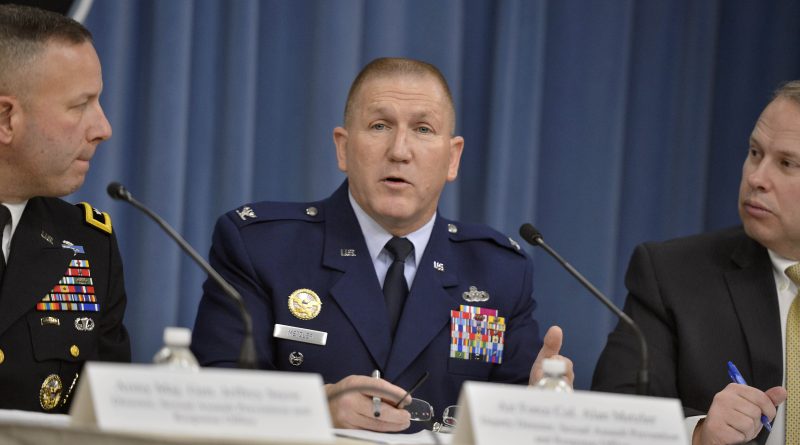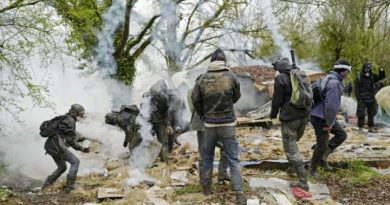Alan Metzler: National Security Initiatives to Homeland Security Threats
By Andrew Wilson
Associate Editor
On October 2, the former Deputy Chief of Staff of the Department of Homeland Security, Alan Metzler, visited Seton Hall University’s School of Diplomacy and International Relations to give insights on strategic United States national security initiatives, and reflect on his past role in analyzing homeland security threats.
During his near thirty-year tenure in the Department of Homeland Security, the Department of Defense, the National Security Council, and the U.S. Air Force, Metzler served as Chief of Staff at the Transportation Security Administration and as a Senior Counselor to the Secretary of Homeland Security. His portfolio included aviation security, counter-terrorism, immigration enforcement, and the safety of national leaders.
Following his graduation from the University of California, Santa Barbara in 1985, Metzler joined the U.S. Air Force as an officer and military policeman. There, he quickly became involved in the military politics of the Cold War while working at an intercontinental ballistic missile base in North Dakota. Recounting this time, Metzler narrated an incidence when he “became a nuclear power for one day,” after a truck in his warhead transport convoy caught fire. This forced him to declare a national defense area, an area established on non-Federal lands within the U.S. for safeguarding classified defense information or protecting Department of Defense equipment and/or material, in which he was the senior executive official.
After beginning his service on the home front, Metzler served two assignments in the U.S. nuclear commitment to NATO in Germany and the United Kingdom. While stationed in the U.K., Metzler recalled the dramatic geopolitical changes that occurred after the Berlin wall fell, and the evolution of European governance and economic development caused by it.
Although it seemed a period of peace was imminent, Metzler recounted his transition to war on terrorism long before 2001. “I had airmen in Khobar Towers, Saudi Arabia,” he said. More incredibly, on September 11, Metzler was the chief of security at a fighter plane base in North Carolina. That morning, he started the grim process of arming jets to shoot down hijacked U.S. civilian airliners.
Following this assignment, Metzler transferred to Washington, D.C. to work in the Pentagon’s famed “E-Ring,” and then to the White House for the National Security Council.
At the council, Metzler worked to ensure that the U.S. Constitution’s Advice and Consent Clause was not imposed on the President’s ability to negotiate a strategic framework agreement with the Iraqi Government. In other words, Metzler worked to retain President Obama’s authority over the terms of this agreement without having to negotiate through Congress. In 2009, he worked to implement this agreement on the ground in Iraq, specifically Metzler secured detained insurgents at Camp Bucca in the southern Umm Qasr region.
In the Pentagon’s Legislative Affairs Office, Metzler reviewed the Freedom of Information Act requests for controversial defense policy meetings in September 2001. These included disputes about whether or not Iraq could be linked to Al-Qaeda, and therefore regarded as a state sponsor of terrorism. This link would then justify the U.S. invasion and subsequent overthrow of Saddam Hussein.
When questioned about personal morals on similar positions, Metzler stated that it took the strength of his personal ethics to align himself with the institutional values of the U.S. Armed Forces. “You have a set of your own core values that allow you to make decisions… When I see an unlawful order, I can identify it.”
Metzler concluded by noting the significance of his appointments within both the Obama and Trump administrations. Reflecting on the differences between his assignment to President Obama’s executive actions on immigration and his implementation of President Trump’s travel ban, he stated, “Not too many people get the privilege of working both sides. I liked it.”


